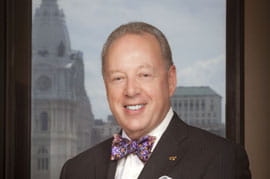What I’m Reading: Mimi Sheller

Mimi Sheller is a sociology professor who studies mobility in public life. Through her teaching and in her role as director of Drexel’s Center for Mobilities Research and Policy (mCenter ), Sheller studies how people move, how mobile communication changes how people move, and how new systems of mobility also create immobility. Coincidentally, the novel she’s currently reading—Flight Behavior by Barbara Kingsolver—looks at how the movement and flight patterns of monarch butterflies could be affected by climate change.
Why did you choose this book and what is it about?
Barbara Kingsolver is a beautiful writer—her use of language is really sort of surprising and original. I’ve read her non-fiction book Animal, Vegetable, Miracle: A Year of Food Life, which is about her family’s efforts to eat locally in Southern Appalachia. When I read a review of Flight Behavior, it sounded interesting because it’s set in the same region and is also about environmental issues.
In her novels, she has great characters. They’re very memorable and strong characters who seem like unusual but real people.
The book is set in Southern Appalachia just a little bit beyond the current day. One of the book’s themes is the impact of climate change on monarch butterflies. But the book doesn’t hit you over the head with that theme. Instead, it’s about the people living in this rural farming area, struggling to make a living and raise their children. In the story, the weather is changing and the characters are starting to notice the changing weather, which has brought an unexpected migration of monarch butterflies. At first it just seems like a really beautiful miracle, the local media try to promote it, and visitors start to come; but really it is evidence of something seriously wrong with the natural environment, as the main character (and the reader) gradually learns.
What is it about this book/topic that you find important or enjoyable?
I really enjoyed the story’s central character, Dellarobia. The story is told from her perspective; she’s a young woman, struggling to stick to her marriage and raise two young children, even as she longs for more out of life. She’s someone who is curious and she notices a lot of things. Then there are the scientists who have come to study the butterflies. One is from St. Thomas in the U.S. Virgin Islands, which really surprised me. Some of my research is on the Caribbean, in particular on how you translate between local knowledge and expert knowledge in the context of natural disasters like earthquakes and floods, and that’s really what’s happening in this book.
I also liked that the book is about mobilities in lots of different ways. The migration of the butterflies, which normally takes them to Mexico, has been disrupted, but also Mexican migrants are coming to rural parts of the United States to work. So both human and animal mobilities are related to surviving, which is impacted by climate change, and also drives mobilities of tourists, scientists and knowledge.
Did the book live up to your expectations?
Yes, I couldn’t put it down. I loved reading it. In fact, I read it over the winter break, and I had to ration the number of chapters I read per night so I didn’t run out too fast.
Is there a passage or a quote you find particularly interesting?
There was one sentence that for me kind of sums up the book. Dellarobia is introducing her son to nature and to the spectacle of millions of beautiful butterflies hanging from the forest. But she’s learning from the scientists that the entire population of this species may be dying due to habitat loss.
“Dellarobia felt an entirely new form of panic as she watched her son love nature so expectantly, wondering if he might be racing toward a future like some complicated sand castle that was crumbling under the tide.”
As a mother I often feel the same way, like significant parts of the natural world might be disappearing before my two girls ever get to experience it, outside of picture books and videos.
In This Article
Drexel News is produced by
University Marketing and Communications.
